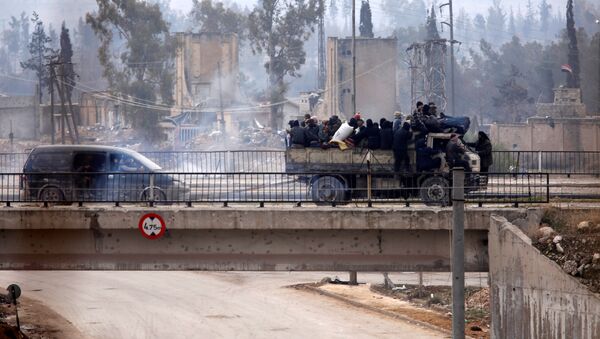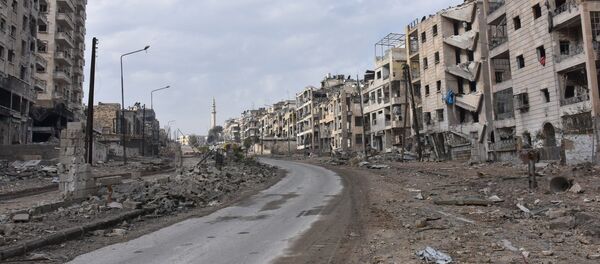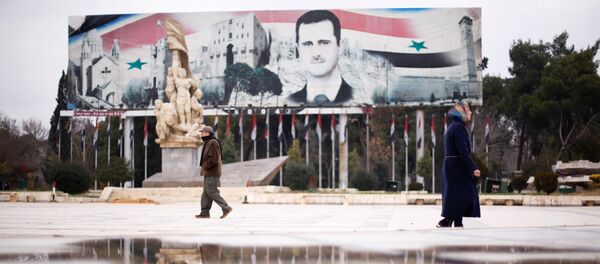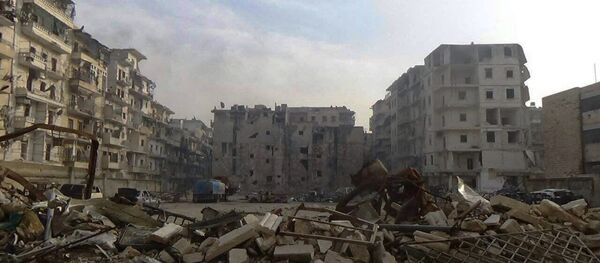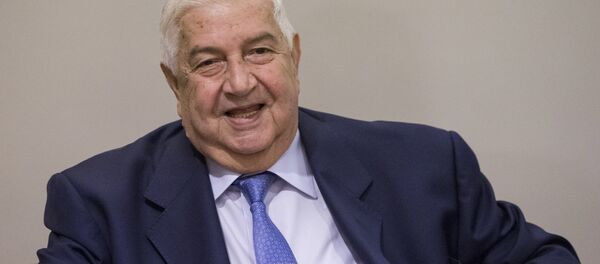Alexander Perendzhiev, a political and military analyst and lecturer at the Plekhanov Russia University of Economics, called the three agreements unveiled on Thursday as a "major victory of Russian diplomacy," adding that they show that "sacrifices made by the Syrian Arab Army and the Russian military have not been in vain."
"It's extremely important that Turkey has agreed to join the fight against Daesh and al-Nusra Front. Apparently, today a new phase has begun. If we look at the ceasefire, Daesh and al-Nusra Front are not a part of it. Turkey has agreed to exclude Jabhat Fateh al-Sham (formerly known as al-Nusra Front) from the deal. If Turkey is able to convince all armed opposition groups to join the ceasefire, while Russia and Iran make similar guarantees… If these joint guarantees work, then this will be a milestone" in resolving the Syrian crisis, Naumkin told RIA Novosti.
A 'positive stage' in resolving the Syrian conflict
Middle East expert Vladimir Sazhin described the latest agreements on Syria as a "positive stage in resolving the Syrian crisis through peaceful means," but refrained from calling them a breakthrough.
"I am a pessimist. I don't really think that the Syrian issue could be resolved by military or political means. It is too complicated. There are too many players both inside and outside the country. I think that Syria will be split up in the future, with enclaves controlled by numerous groups," he told RIA Novosti.
The deal has already produced certain results since a nationwide ceasefire signed by seven armed opposition groups, which have approximately 62,000 fighters, has come into force in the early hours of December 30.
How long will truce hold?
Isayev suggested that the deal could work in northwestern Syria.
"The talks involving Russia, Iran and Turkey preceded these agreements," he said, adding that these countries are interested in the de-escalation of tensions in the region and putting an end to fighting in the provinces of Aleppo and Idlib. Each country has its reasons, but the main one is that this is an exhausting war. All sides have wasted a lot of resources. At some point the costs could outweigh the benefits," he said.
The deal's future, the analyst added, will depend on whether Russia, Turkey and Iran could encourage other key stakeholders, particularly the Gulf monarchies and the United States, to become involved in these efforts.
Talks in Astana
Naumkin maintained that the meeting in Astana has to take place as soon as possible, preferably before Donald Trump's inauguration on January 20.
"I think that parameters of the agreement [on resolving the Syrian crisis] will be reached at the meeting in Astana," he said. "It will happen before January 20… Then we switch to Geneva. In between these two meetings the Trump team will come to power and we will be able to rapidly work with it."
The analyst added that two meetings could take place simultaneously, with one involving leaders and representatives of Russia, Iran, Turkey and Kazakhstan. The second one will see talks between a delegation from Damascus and the opposition.
Who signed the deal?
Vladimir Sazhin pointed out that it remained unclear who signed the deal. "Opposition is a very broad term in Syria, which includes those who do not share some of Assad's views and those who are terrorists," he said.
President Putin also said that Russia plans to limit its military engagement in Syria, but reaffirmed that the country will still continue to fight against international terrorism.
Never miss a story again — sign up to our Telegram channel and we'll keep you up to speed!

